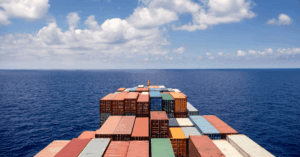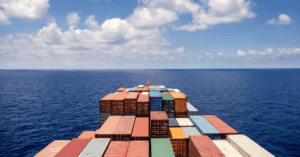
20,000 Litres Of Oil Spilled Into Gulf Of Thailand After Supertanker Disconnects From Pipeline
June 7, 2025
Crew Member Found Dead Aboard Platform Supply Vessel Off U.S. East Coast
June 7, 2025

The United States government has suspended licenses that allowed American suppliers to ship parts and equipment for nuclear power plants to China.
The U.S. Department of Commerce issued the suspension orders in recent days. These orders affect key nuclear equipment and parts, critical for the operation and maintenance of Chinese nuclear power plants.
While the department has not publicly commented on the nuclear-specific restrictions, a spokesperson stated on May 28 that certain exports of strategic importance to China were under review.
In some instances, the department had already suspended existing licenses or introduced new license requirements during the review process. Industry insiders said the affected licenses involve business worth hundreds of millions of dollars.
Among the impacted companies are U.S. nuclear giants Westinghouse and Emerson. Westinghouse, whose technology powers more than 400 reactors globally, and Emerson, known for supplying measurement tools to the nuclear industry, did not respond to requests for comment.
Sources say new export restrictions have affected a hydraulic fluid supplier, GE Aerospace, and companies exporting ethane and butane to China. GE’s suspended license specifically blocks shipments of jet engines to China’s state-owned aircraft manufacturer, COMAC.
Energy companies are also under pressure. Houston-based Enterprise Product Partners said it has yet to receive approval for emergency requests to complete three cargoes of ethane, totaling around 2.2 million barrels, bound for China.
The company confirmed that a separate butane license requirement, imposed on May 23, was later lifted. Dallas-based Energy Transfer also said it was informed about new licensing requirements for ethane exports and plans to seek emergency clearance.
The new export restrictions happened because the trade discussions between the U.S. and China suddenly worsened. Although both countries agreed on May 12 to pause their tariff war for 90 days, tensions quickly escalated again.
The U.S. accused China of not keeping promises about rare earth materials, while China accused Washington of weaponizing export controls, especially after the U.S. warned that using Huawei’s Ascend AI chips anywhere in the world might break U.S. rules.
It’s not clear if a phone call last Thursday between President Joe Biden and China’s President Xi Jinping will change the nuclear export freeze or other licensing issues.
Reference: Reuters
Source: Maritime Shipping News


